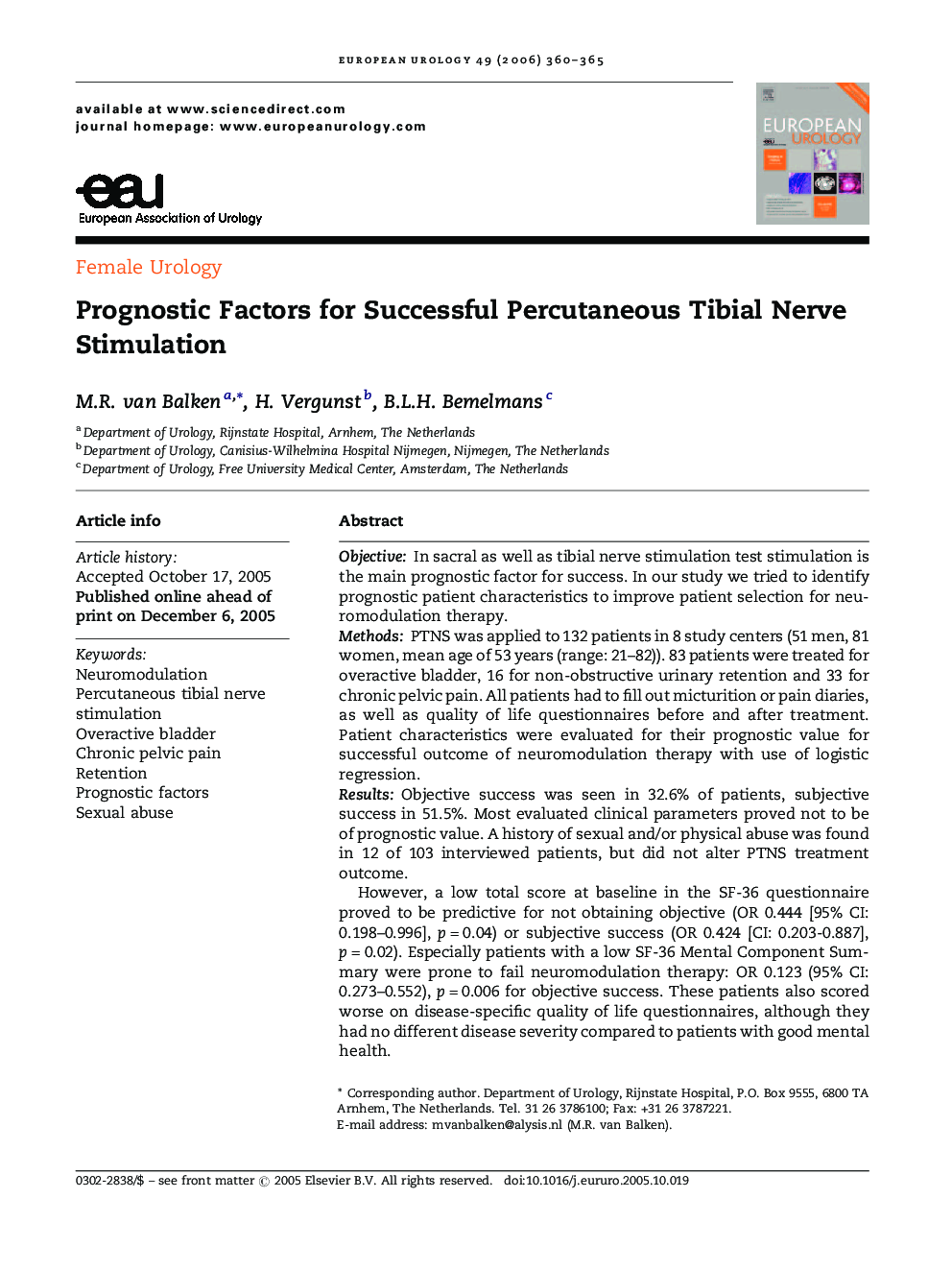| کد مقاله | کد نشریه | سال انتشار | مقاله انگلیسی | نسخه تمام متن |
|---|---|---|---|---|
| 3923570 | 1253049 | 2006 | 6 صفحه PDF | دانلود رایگان |

ObjectiveIn sacral as well as tibial nerve stimulation test stimulation is the main prognostic factor for success. In our study we tried to identify prognostic patient characteristics to improve patient selection for neuromodulation therapy.MethodsPTNS was applied to 132 patients in 8 study centers (51 men, 81 women, mean age of 53 years (range: 21–82)). 83 patients were treated for overactive bladder, 16 for non-obstructive urinary retention and 33 for chronic pelvic pain. All patients had to fill out micturition or pain diaries, as well as quality of life questionnaires before and after treatment. Patient characteristics were evaluated for their prognostic value for successful outcome of neuromodulation therapy with use of logistic regression.ResultsObjective success was seen in 32.6% of patients, subjective success in 51.5%. Most evaluated clinical parameters proved not to be of prognostic value. A history of sexual and/or physical abuse was found in 12 of 103 interviewed patients, but did not alter PTNS treatment outcome.However, a low total score at baseline in the SF-36 questionnaire proved to be predictive for not obtaining objective (OR 0.444 [95% CI: 0.198–0.996], p = 0.04) or subjective success (OR 0.424 [CI: 0.203-0.887], p = 0.02). Especially patients with a low SF-36 Mental Component Summary were prone to fail neuromodulation therapy: OR 0.123 (95% CI: 0.273–0.552), p = 0.006 for objective success. These patients also scored worse on disease-specific quality of life questionnaires, although they had no different disease severity compared to patients with good mental health.ConclusionBad mental health as measured with the SF-36 Mental Component Summary does not depend on symptom severity and is a negative predictive factor for success of percutaneous tibial nerve stimulation. It therefore might be used as a tool for better patient selection in neuromodulation therapy.
Journal: European Urology - Volume 49, Issue 2, February 2006, Pages 360–365